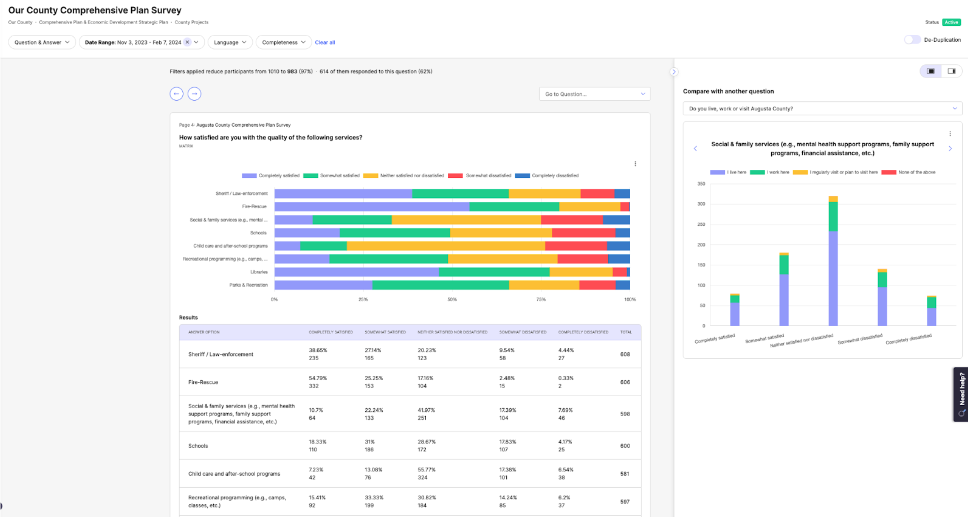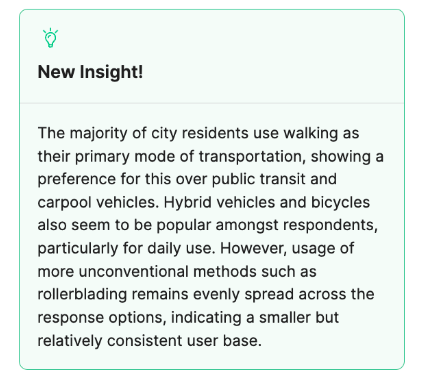Maximizing the Usage of Public Engagement Data in Local Governments

Tim Booker
Director of Product
Harnessing the Power of Cross-Tabulation
A great starting point when breaking down feedback collected from public engagement is comparing two data sets. A cross-tabulation of responses collected for an opinion/prioritization question and a demographic question is one of the most popular and meaningful ways to go deeper and see if there is a disparity between what is important to individuals from different groups (age, race, gender, income, housing status, etc.). Without this type of analysis, you could be at risk of consistently undeserving a portion of your community.

PRO-TIP: Cross-tabulation works great on simple quantitative questions, but it can also yield insights on individual line items in ranking, matrix, and budget questions. Try it out in Engage results in the ‘Compare with another question’ column.
Embracing the Assistance of Artificial Intelligence
The staggering volume of data available to governments can be overwhelming, yet among that data are the valuable insights needed to shape actionable policy. Artificial Intelligence (AI) presents unprecedented opportunities by automating trend identification and streamlining data exploration.
AI can substantially reduce the time and related costs of reviewing large amounts of data, including complex quantitative relationships or large amounts of open-ended comments, to identify recurring themes or notable outlier opinions.

Closing the Loop
Transparency builds trust, and one of the most effective ways to foster trust within a community is by regularly publishing summary reports of public engagement data to staff and residents. By sharing the results [and their impact on future decision-making] of engagement activities online, citizens can see their feedback being used to drive change. Local governments can keep their communities informed and ready to contribute their perspectives on policies and initiatives impacting the public dialogue. Providing key staff members with hard-won insights can empower them to use these key findings to create and manage local projects and programs that better meet the needs of those living and working in the community.
Conclusion
Decoding public sentiment and transforming it into actionable steps is vital to proactive governance. Embracing these tools and techniques supports meaningful and focused engagement, drives intelligent decision-making, and ultimately leads to more effective local governments.
%20copy-1.png?width=544&height=120&name=Logo_black%20(1)%20copy-1.png)




